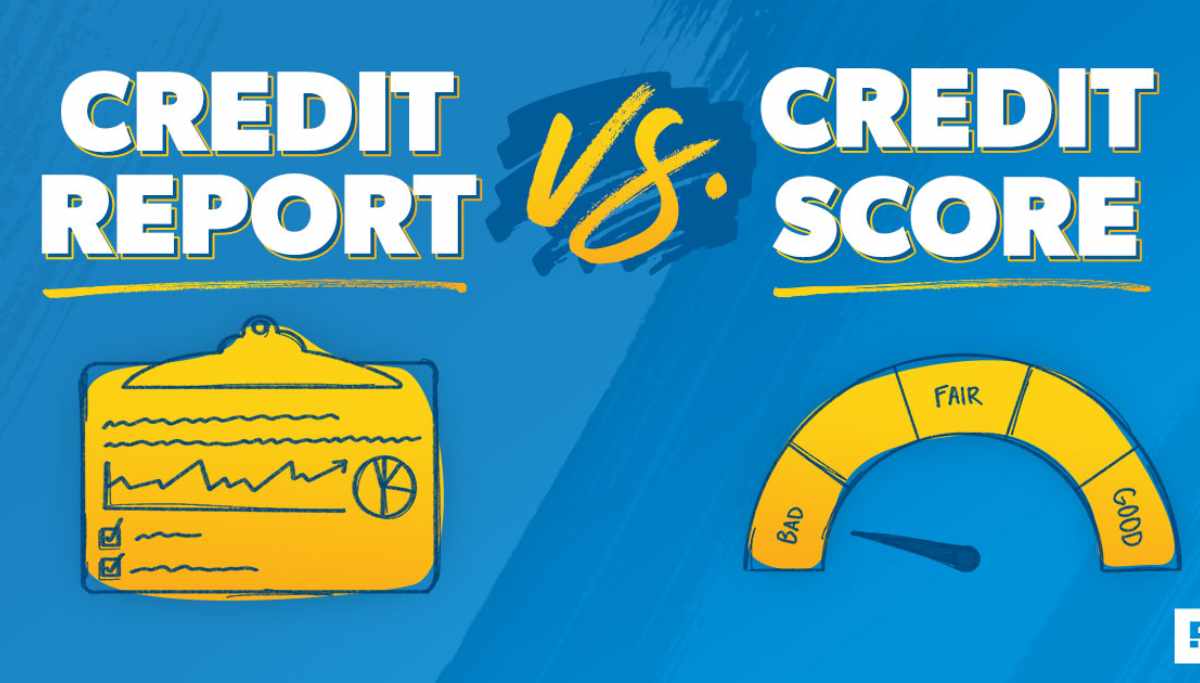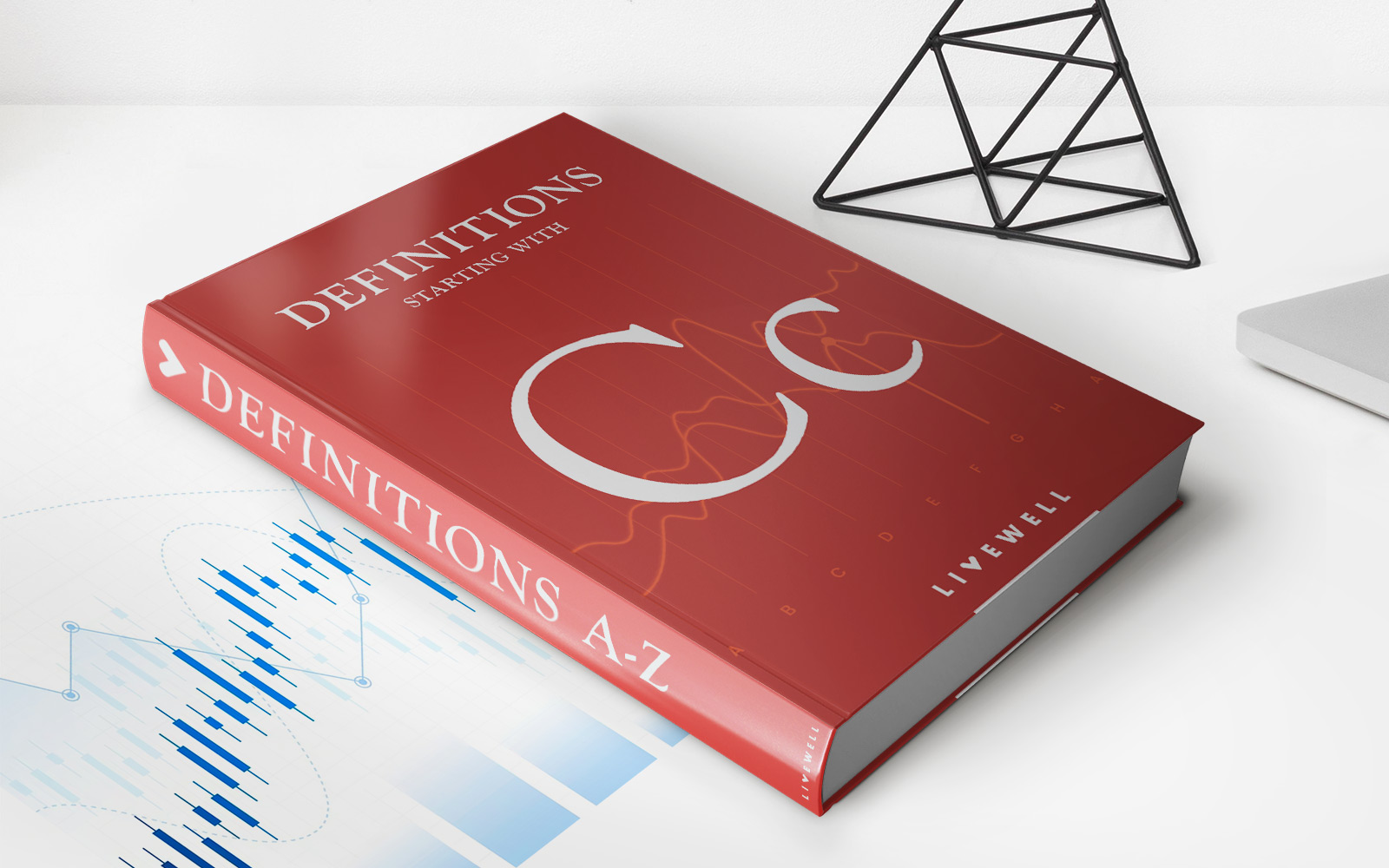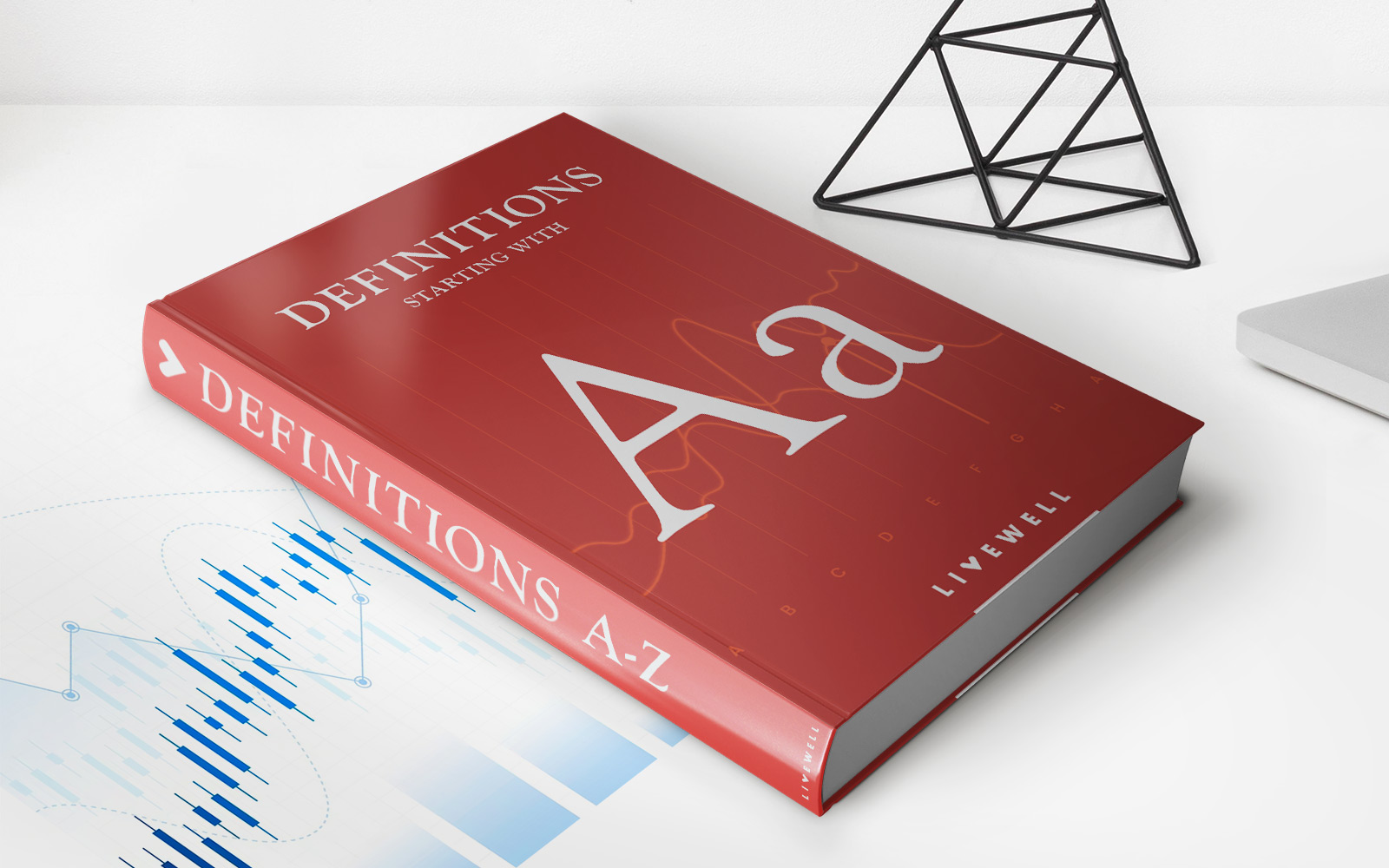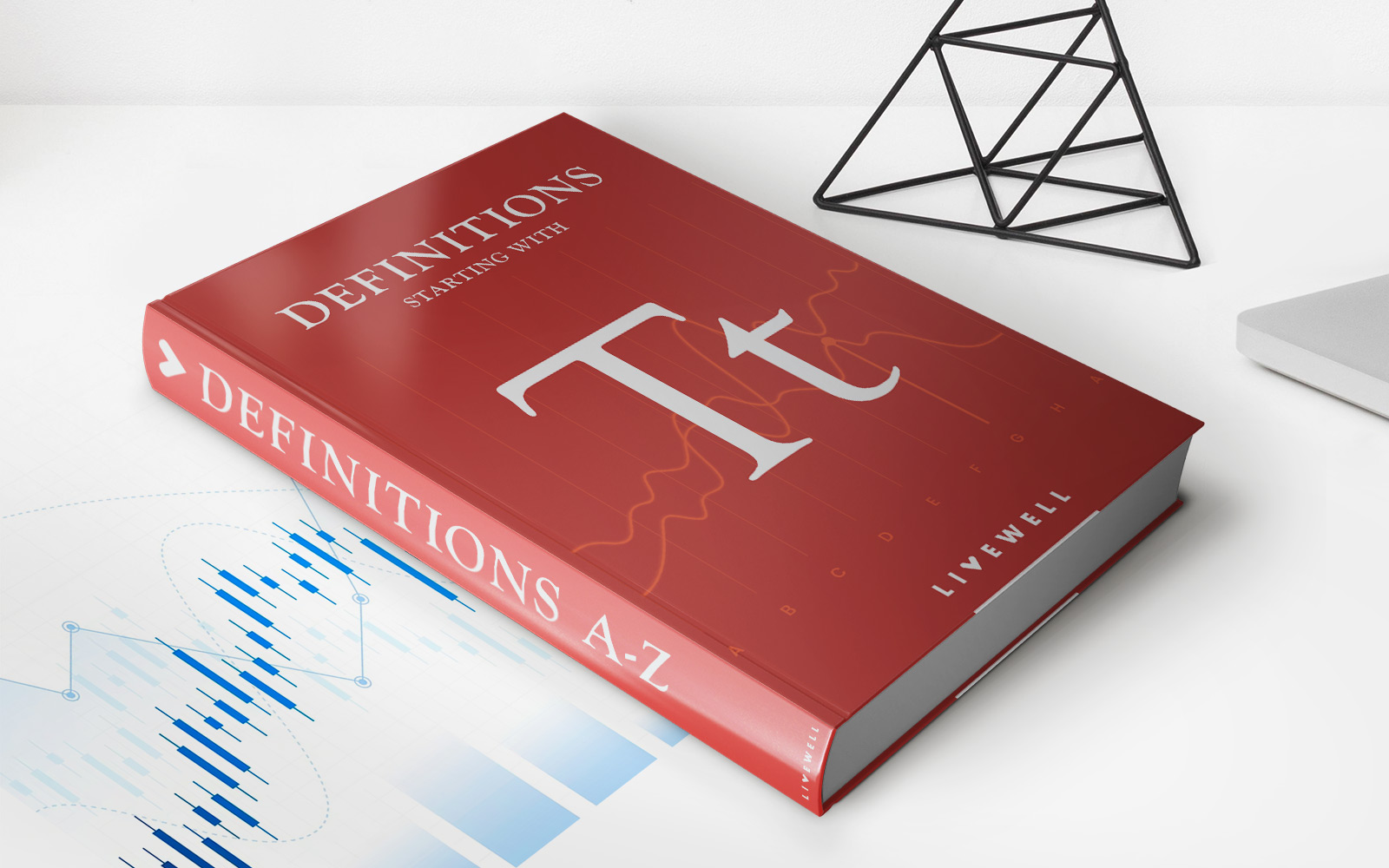Home>Finance>What Does Potentially Negative Mean On Credit Report


Finance
What Does Potentially Negative Mean On Credit Report
Modified: March 10, 2024
Learn what the term "potentially negative" means on your credit report and how it can impact your overall financial situation. Understand the importance of monitoring your credit and taking proactive steps to improve your financial health.
(Many of the links in this article redirect to a specific reviewed product. Your purchase of these products through affiliate links helps to generate commission for LiveWell, at no extra cost. Learn more)
Table of Contents
- Introduction
- Understanding credit reports
- Negative information on credit reports
- What does “potentially negative” mean?
- Types of potentially negative information
- Impact of potentially negative information
- How to address potentially negative information
- Importance of monitoring and correcting credit reports
- Conclusion
Introduction
Welcome to the world of credit reports! In today’s financial landscape, credit plays a vital role in determining one’s ability to secure loans, obtain favorable interest rates, and even rent an apartment. A credit report is a comprehensive summary of an individual’s credit history, providing valuable information to potential lenders and creditors.
Understanding credit reports is essential for anyone seeking financial stability. One key aspect of credit reports is the presence of negative information. This can range from late payments and collections to bankruptcies and foreclosures. Negative information can have a significant impact on an individual’s creditworthiness and overall financial well-being.
When perusing a credit report, you may come across the term “potentially negative.” But what exactly does it mean? In this article, we will delve into the meaning of “potentially negative” and explore its implications on your creditworthiness.
By gaining a thorough understanding of this term and its impact, you will be able to better navigate the complex world of credit reporting and take the necessary steps to maintain a positive credit standing. So, let’s dive in and unravel the mysteries of “potentially negative” information on credit reports!
Understanding credit reports
Before we delve into the concept of “potentially negative” information on credit reports, let’s first establish a solid understanding of what credit reports are and how they function.
A credit report is a detailed record of an individual’s credit history, including their borrowing and repayment activities. It serves as a summary of an individual’s financial responsibility and creditworthiness. Credit reports are compiled by credit bureaus, which collect information from various sources such as lenders, creditors, and public records.
The key components of a credit report include personal information (such as name, address, and social security number), credit accounts, payment history, public records (such as bankruptcies or tax liens), and inquiries (which indicate when someone has requested to view the individual’s credit report).
Lenders and creditors rely on credit reports to assess an individual’s creditworthiness and make informed decisions about granting loans, extending credit, or offering favorable interest rates. A clean credit report with a history of timely payments and responsible credit management will generally result in a higher credit score and more favorable borrowing terms.
It’s important to note that each individual is entitled to one free copy of their credit report annually from each of the three major credit bureaus: Equifax, Experian, and TransUnion. Reviewing your credit report regularly allows you to monitor your credit standing, identify any errors or discrepancies, and take action to rectify any potential issues.
Now that we have a solid foundation of credit reports, let’s explore the concept of “potentially negative” information and its implications on your credit report.
Negative information on credit reports
When it comes to credit reports, negative information refers to any factors that may portray an individual as a higher credit risk. This information can range from late or missed payments to more severe issues such as bankruptcies or foreclosures.
Having negative information on your credit report can have significant consequences. It can lower your credit score, making it more difficult to obtain credit or secure favorable interest rates. Additionally, potential lenders and creditors may view you as a higher risk borrower, resulting in limitations or higher fees associated with loan or credit applications.
Examples of negative information that can appear on your credit report include:
- Late or missed payments: Late payments, even by just a few days, can negatively impact your credit report. They demonstrate a lack of responsible payment behavior and can stay on your report for up to seven years.
- Collections: If a debt goes into collections, it means that the creditor has turned the account over to a third-party collection agency. Collections can significantly damage your credit report and will typically stay on record for up to seven years from the date of the delinquency that led to the collection.
- Bankruptcies: Filing for bankruptcy is a drastic measure taken when an individual or business is unable to repay their debts. Bankruptcies can stay on your credit report for up to ten years and have a severe impact on your creditworthiness.
- Foreclosures: If you default on your mortgage payments and your lender takes possession of your property, it is considered a foreclosure. This is a highly detrimental event that can have long-lasting consequences on your credit report.
- Tax liens and judgments: If you have unpaid tax debts or encounter legal judgments against you, they can appear as negative information on your credit report and have a negative impact on your creditworthiness.
It’s important to note that negative information does not stay on your credit report indefinitely. Most negative information, such as late payments and collections, will eventually be removed after a certain period of time. However, the impact of negative information may still be felt for several years. It’s crucial to address and rectify any negative information on your credit report to improve your creditworthiness and financial standing.
Now that we have a better understanding of negative information on credit reports, let’s explore what it means when information is labeled as “potentially negative”.
What does “potentially negative” mean?
When reviewing your credit report, you may come across entries that are labeled as “potentially negative”. This term refers to information that has the potential to negatively impact your creditworthiness but is not yet considered a definitive negative factor. It serves as a warning or indication that certain aspects of your credit history may become negative if left unaddressed.
The label “potentially negative” is a way for credit bureaus and lenders to highlight areas of concern on your credit report. It serves as a heads-up that certain factors, if they continue or worsen, could result in more severe negative consequences.
For example, a “potentially negative” entry could be a missed payment or a collection account that is still fresh and has not yet fully impacted your credit score. It serves as a reminder to take corrective measures to prevent the situation from deteriorating further.
When an item is labeled as “potentially negative”, it means that it has the potential to become a significant negative factor on your credit report if not addressed promptly. This could lead to a lower credit score and hinder your ability to obtain credit or secure favorable borrowing terms.
It’s important to note that not all credit reports use the term “potentially negative”. Some credit reports may use different labels or simply present the negative information without specifying its potential impact. Nevertheless, the underlying concept remains the same – it serves as a warning sign for you to take action and mitigate any possible negative repercussions.
Addressing “potentially negative” information is crucial for maintaining a positive credit standing. By taking proactive steps to rectify any issues and improve your creditworthiness, you can prevent the potential negative impact from materializing and ensure a solid financial foundation.
Now that we understand what “potentially negative” means, let’s explore some common types of potentially negative information that can appear on your credit report.
Types of potentially negative information
When it comes to credit reports, there are various types of potentially negative information that can have an impact on your creditworthiness. These entries serve as indicators of potential risk and should be addressed to prevent further negative consequences. Here are some common types of potentially negative information that may appear on your credit report:
- Late payments: Missed or late payments can be labeled as potentially negative if they are recent or recurring. These entries serve as a warning that your payment behavior may lead to a more significant negative impact if not rectified promptly.
- High credit utilization: If you consistently use a large percentage of your available credit, it can be seen as a potential risk to lenders. This is especially true if you have maxed out credit cards or high balances on multiple accounts.
- Recent credit inquiries: Multiple credit inquiries within a short period can indicate that you are actively seeking credit. While individual inquiries may not be negative, a high number of inquiries can raise concerns and be labeled as potentially negative.
- Unsatisfactory debt-to-income ratio: If your total debt obligations, such as loans and credit card balances, are significantly higher than your income, it can be seen as a potential risk. Lenders may view this as a potential inability to handle additional debt responsibly.
- Public records: Certain public records, such as tax liens or civil judgments, can be labeled as potentially negative if they indicate a risk to your creditworthiness. These records could result in further negative consequences if left unaddressed.
- Derogatory accounts: Accounts that have been flagged for potential negative impact but have not yet reached the level of severe delinquency or collections can be labeled as potentially negative. These accounts should be monitored closely and addressed to prevent further damage to your credit report.
It’s important to remember that while these entries may be labeled as potentially negative, their impact can vary depending on individual circumstances and the overall content of your credit report. It’s essential to address and resolve any potential issues to prevent them from becoming more severe negative factors on your credit report.
Now that we have an understanding of the types of potentially negative information, let’s explore the impact that this information can have on your creditworthiness.
Impact of potentially negative information
Potentially negative information on your credit report can have a significant impact on your creditworthiness and financial well-being. While these entries may not yet be classified as fully negative, they serve as warning signs and can still affect your ability to secure credit or favorable borrowing terms. Here are some potential impacts that can arise from potentially negative information:
- Lower credit score: Potentially negative information can cause your credit score to decline. Late payments, high credit utilization, and other types of potentially negative entries contribute to a lower credit score. A lower credit score makes it more challenging to qualify for loans, credit cards, or favorable interest rates.
- Difficulty securing credit: Lenders and creditors evaluate credit reports to assess an individual’s creditworthiness. If your credit report contains potentially negative information, it may cause lenders to perceive you as a higher-risk borrower. This can result in being denied credit or being offered credit with unfavorable terms, such as higher interest rates or stricter repayment terms.
- Higher insurance premiums: Some insurance companies use credit information to determine premiums. If your credit report displays potentially negative information, it may lead insurers to view you as higher risk. As a result, you may face higher premiums for auto insurance, homeowner’s insurance, or other types of coverage.
- Limited housing options: Landlords often review credit reports when considering rental applications. Potentially negative information on your credit report can make it more challenging to secure housing, as landlords may view you as a higher-risk tenant. In some cases, you may be required to pay a higher security deposit or seek alternative housing options.
- Employment prospects: Certain employers may review credit reports as part of the hiring process, especially for roles involving financial responsibilities. Potentially negative information on your credit report may raise concerns about your reliability and financial stability, potentially affecting your employment prospects.
While potentially negative information does not carry the same weight as fully negative entries, it is still essential to address these issues promptly. By taking proactive steps to improve your creditworthiness and rectify potential problems, you can minimize the impact of these entries and increase your chances of obtaining credit or favorable borrowing terms.
Now that we understand the potential impact of potentially negative information, let’s explore how to address and rectify these issues on your credit report.
How to address potentially negative information
Addressing potentially negative information on your credit report is crucial for improving your creditworthiness and financial standing. While these entries may not have reached the level of severe negative factors, taking proactive steps to address them can prevent further damage. Here are some strategies to help you address potentially negative information:
- Review your credit report: Start by obtaining a copy of your credit report from each of the major credit bureaus. Carefully review the report to identify any entries labeled as potentially negative. Pay close attention to accuracy, as errors or discrepancies can negatively impact your creditworthiness.
- Contact the creditor or lender: If you identify a potentially negative entry that you believe is inaccurate or unjust, reach out to the creditor or lender associated with that particular account. Provide them with any supporting documentation to dispute the entry and request that it be corrected or removed from your credit report.
- Address outstanding debts: If you have outstanding debts that are contributing to the potentially negative information on your credit report, develop a strategy to pay them off or negotiate a repayment plan with the creditor. Taking proactive steps to address these debts shows lenders that you are committed to resolving financial obligations.
- Create a positive payment history: One of the most effective ways to counter potentially negative information is by establishing a pattern of timely payments. Ensure that all your current and future credit accounts are paid on time to demonstrate responsible financial behavior and improve your creditworthiness over time.
- Manage credit utilization: If high credit utilization is contributing to potentially negative information, strive to reduce your credit card balances and keep them well below the credit limit. Aim for a utilization rate of 30% or lower, as this demonstrates responsible credit management.
- Seek professional help if needed: If you are overwhelmed or unsure of how to address potentially negative information, consider seeking assistance from reputable credit counseling agencies or credit repair services. These professionals can guide you through the process of addressing and rectifying issues on your credit report.
Remember, addressing potentially negative information takes time and effort. It requires consistent and responsible financial habits to improve your creditworthiness. Keep in mind that even as you address these issues, it may take some time for the positive effects to reflect on your credit report.
Regularly monitoring your credit report is also essential. By reviewing your credit report periodically, you can ensure that any corrections or updates have been made, and that potentially negative information has been resolved or removed. Staying proactive and vigilant about your credit can help you maintain a positive credit standing.
Now that we have explored ways to address potentially negative information, let’s emphasize the importance of monitoring and correcting your credit report.
Importance of monitoring and correcting credit reports
Monitoring and correcting your credit reports is crucial for maintaining a healthy credit profile and financial stability. Here are some reasons why it is important to regularly monitor and correct your credit reports:
- Identity theft protection: Monitoring your credit reports allows you to detect any suspicious activity that may indicate identity theft. By reviewing your reports regularly, you can identify unfamiliar accounts or inquiries and take immediate action to prevent further damage.
- Accuracy and error correction: Credit reporting errors are not uncommon, and they can negatively impact your creditworthiness. By monitoring your credit reports, you can identify any inaccuracies, such as incorrect personal information or erroneous negative entries attributed to you. Correcting these errors ensures that your credit report accurately reflects your financial history.
- Preventing potential damage: Monitoring your credit reports allows you to promptly address any potentially negative information. By taking proactive steps to rectify issues or disputes, you can prevent the information from turning into fully negative factors that can severely impact your creditworthiness.
- Improving your creditworthiness: Correcting inaccurate information and addressing potentially negative entries on your credit reports can have a positive impact on your creditworthiness. It can lead to an improved credit score, enhanced chances of obtaining credit, and access to more favorable borrowing terms.
- Awareness of your financial standing: By regularly reviewing your credit reports, you gain a clear understanding of your financial standing. It allows you to assess your debt obligations, track your payment history, and make informed decisions to improve your overall financial health.
To monitor and correct your credit reports effectively, it’s essential to follow these tips:
- Request and review your free annual credit reports from each of the major credit bureaus.
- Check for accuracy and discrepancies in personal information, accounts, payment history, and public records.
- Dispute any errors or inaccuracies by contacting the credit bureaus and providing supporting documentation.
- Keep records of any correspondence and follow up to ensure that corrections are made.
- Regularly monitor your credit reports for any changes or new potentially negative information.
- Stay proactive about your financial habits by making timely payments, minimizing credit utilization, and managing your debts responsibly.
By monitoring and correcting your credit reports, you take control of your financial well-being and protect yourself from potential harm. It allows you to maintain accurate and updated credit information, which plays a crucial role in your ability to secure credit, loans, and favorable financial opportunities.
Now that we have emphasized the importance of monitoring and correcting credit reports, let’s conclude our discussion.
Conclusion
Understanding and managing your credit reports is essential for maintaining a healthy financial life. Throughout this article, we have explored the concept of “potentially negative” information on credit reports and its significance in assessing creditworthiness. We have learned that potentially negative information serves as a warning sign, indicating areas of concern that could evolve into more severe negative factors on your credit report.
By being aware of the various types of potentially negative information, such as late payments, high credit utilization, and public records, you can take proactive steps to address and rectify these issues. This includes contacting creditors, paying off debts, and ensuring a pattern of responsible financial behavior.
Monitoring and correcting your credit reports on a regular basis is vital. It allows you to detect and address inaccuracies, protect against identity theft, and prevent potential damage to your creditworthiness. By taking control of your credit reports, you can improve your credit score, secure credit on favorable terms, and open doors to better financial opportunities.
Remember, the impact of potentially negative information may take time to resolve. It requires consistency, responsible financial management, and patience. By staying proactive and vigilant, you can maintain a positive credit standing and set yourself up for financial success.
So, take the necessary steps to monitor your credit reports, address potentially negative information, and maintain a healthy credit profile. Your financial well-being will thank you!














